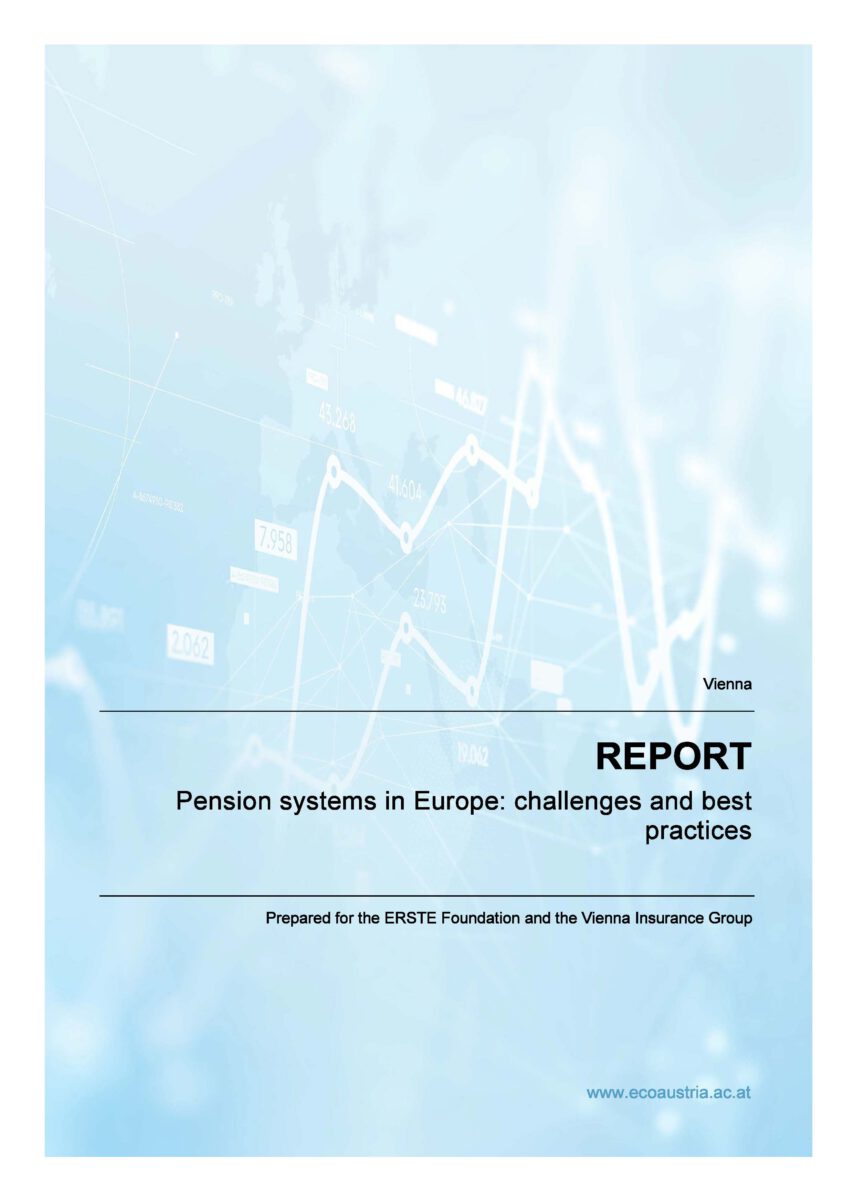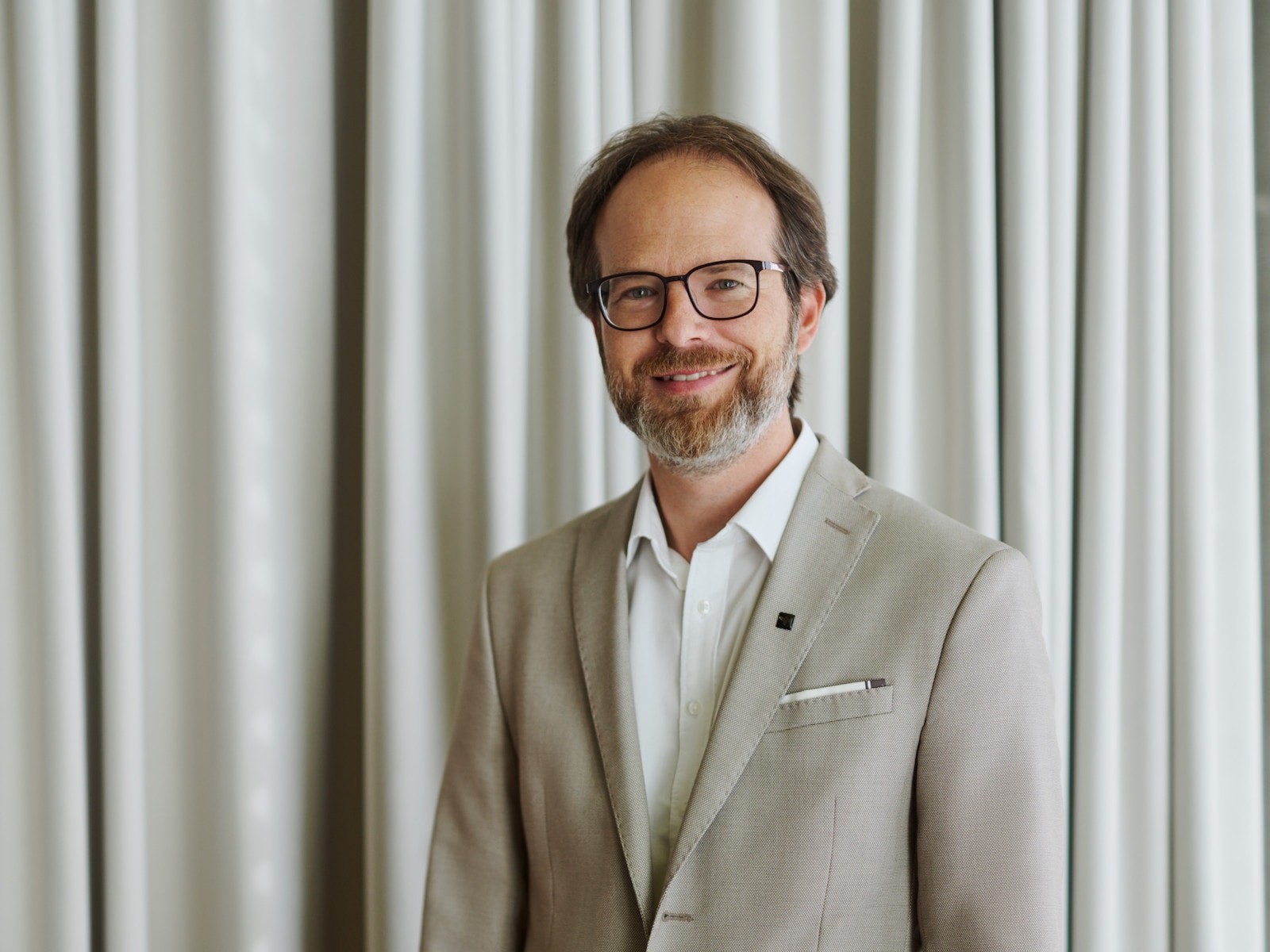Based on the results of a recent international study by EcoAustria – Institute for Economic Research, Löger and Treichl want to relaunch and objectify the debate on a fundamental reform of the pension system. The study forms the starting point for further joint activities on the part of ERSTE Foundation and Vienna Insurance Group (VIG). The aim is to initiate a transformation process through a broad social discussion without prefabricated solutions, which will increase the efficiency of the Austrian pension system and strengthen the competitiveness of Austria as a business location.

Austria has a good and, compared to other countries, generous pension system, one of whose strengths is its redistributive effect. However, it will become considerably more difficult and expensive to maintain in the future. While Austria’s expenditure on pensions is well above the EU average and continues to rise, benefits will fall in future; facts that have been discussed time and again but have not yet been effectively addressed. Andreas Treichl, Chairman of the Supervisory Board of ERSTE Foundation, and Hartwig Löger, Chairman of the Managing Board of Vienna Insurance Group (VIG), have taken up the issue. The EcoAustria study they commissioned compares eleven European pension systems and thus provides the first concrete starting points for effective pension reform in Austria.
“The aim of the study was to understand what sustainable solutions for secure pension systems exist in other European countries. In doing so, we want to objectify the recurring discussion about the urgently needed pension reform and raise it to a new level. We are convinced that it is possible to fundamentally improve the Austrian pension system and thus find a long-term and fair solution for future generations. Other European countries such as Denmark and Sweden are showing us the way,” says Hartwig Löger.
It is well known that Austria’s expenditure on pensions has to be supported by the state budget. Austria’s public spending on pensions is currently the fourth highest in the OECD and well above the EU average. Without reforms, they will continue to rise. Monika Köppl-Turyna, Director of EcoAustria, on the details of the country comparison: “It is often argued that expenditure will only increase moderately. But even this will not be without consequences: the average pension will fall relative to the average wage and the risk of poverty in old age will therefore increase. A comparison with other countries and their pension systems shows that the inclusion of funded components can secure pensions in the long term. The funded pension scheme is a supplement or further development of the prevailing pay-as-you-go pension system. Under the funded principle, assets are accumulated and invested on the free capital market in order to draw a pension or lump sum benefit at a later date.”
For example, the ratio of average pension to average wage (global replacement rate) is 61 percent in Denmark and 67 percent in the Netherlands, while this figure is only 56 percent in Austria. Both the Netherlands and Denmark rely on partially funded pension systems, thereby relieving the burden on their state budgets.
Andreas Treichl on the call for reform: “We want to find the best pension system for Austria. The study provides a good basis for a better and more transparent assessment of alternatives and an unbiased discussion of whether and in what form they are suitable for Austria. As the country examples show, funded components in the pension system can secure prosperity. They have a very positive side effect: as less money has to be reserved in the budget for pensions, more is freed up for other issues such as the green transformation. It is crucial not to waste any more time now and to start looking for new solutions in close cooperation with all relevant social groups. Why should we miss the opportunity to significantly improve the current system instead of going round in circles discussing the retirement age?”
A first important step in this direction was taken at this year’s European Forum Alpbach, where experts from a wide range of institutions discussed far-reaching issues relating to pension reform. Together with the results of the study, these discussions will serve as the starting point for a series of expert rounds. The aim is to develop concrete proposals for a reform of the Austrian pension system by mid-2025. ERSTE Foundation and VIG will provide the framework and infrastructure for this.
Vienna Insurance Group
Vienna Insurance Group (VIG) is the leading insurance group in the entire Central and Eastern Europe (CEE) region. More than 50 insurance companies and pension funds in 30 countries form a group with a long tradition, strong brands and close proximity to its customers. VIG’s approximately 29,000 employees take care of the needs of around 32 million customers every day. VIG shares have been listed on the Vienna Stock Exchange since 1994, on the Prague Stock Exchange since 2008 and on the Budapest Stock Exchange since 2022. VIG Group has an “A+” rating with a stable outlook from the internationally recognized rating agency Standard & Poor’s. VIG cooperates closely with Erste Group, the largest retail bank in Central and Eastern Europe.
ERSTE Foundation
The ERSTE Foundation creates infrastructure and innovation for a Europe in transition: in society, economy and culture. As the core shareholder of Erste Group, the ERSTE Foundation secures the independent future of one of the largest financial service providers in Central, Eastern and Southeastern Europe. As a private Austrian savings bank foundation, the foundation is committed to the common good. www.erstestiftung.org
Inquiry note:
ERSTE Foundation Communication
Martina Bachler
martina.bachler-huber@erstestiftung.org
Tel. 0664 88132418


